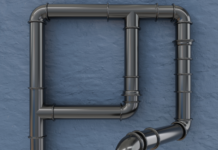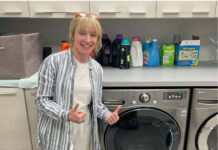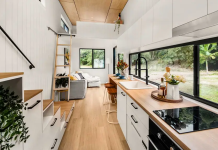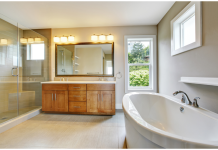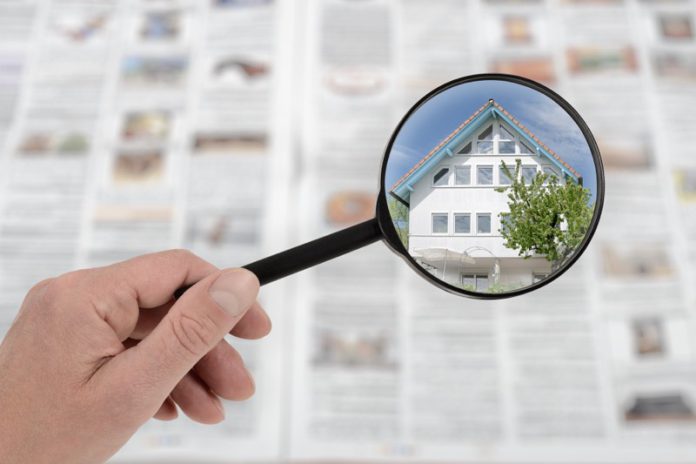Investing in real estate can become quite a lucrative business in today’s market, especially when it involves rental properties. If you want to enter this interesting industry, there are some key steps to consider before jumping in. Real estate and financial pros are sharing some of their top tips on how to purchase your first rental property and how to do it the right way.

1. Single-Family vs. Multi-Family?
You need a well-thought-out strategy before plunking down money for your rental property. Do some research on the goals you want to attain with a specific price range in mind.
Are you interested in a single-family or multi-family property, and in what area of town? How will you decorate the rental property? You want to create an inviting interior that is lovely but also durable and cost-effective. Choosing beautiful vinyl plank flooring is just one way to get in on a trend that offers easy cleaning and is eco-friendly and long-lasting.
2. Location, Location, Location
Ask realtors about the impact of a property’s location, and they will tell you that it means everything. Therefore, when buying your first rental property, consider where it is situated in the community. For instance, is the home’s location in a desirable area? Most folks want convenience, so the closer a home or apartment is to amenities, the more appealing the property will be to a prospective tenant.
If the home is close to grocery stores, retail establishments, restaurants, public transportation, good schools and recreational activities, these all add up to plusses for those looking to rent.
3. Right Kind of Financing
It sounds simple enough, right? You buy a rental home, get a good tenant and start collecting those monthly checks. But not so fast; you need a proper financing plan to make this all work. There are four types of loans to select from, which are a conventional bank loan, hard money loan, private money loan and home equity loan.
You’ll want a reserve fund after you purchase your rental home or apartment. The cash flow coming in may take longer than you expect, and you need extra money for things such as landscaping fees, repair costs for a broken appliance, etc. When it comes to upgrading, the kitchen is one of the most important rooms. White cabinets or gray cabinets create a clean, contemporary look for the kitchen.

4. Landlord Insurance Protection
Renting a home is unpredictable. Anything can happen, such as a loss of rental income and property damage. By obtaining landlord insurance, you can safeguard your investment, have liability protection and be better safe than sorry. A standard homeowner’s policy doesn’t usually cover homes being rented out.
It’s not required by law to have landlord insurance, but most lenders will make it a must if you’re financing the property or have a mortgage. It’s also a good idea to require a security deposit to protect against unforeseeable circumstances.
Also, many tenants don’t realize that the landlord’s insurance does not cover their personal belongings. That is why many landlords strongly encourage or even mandate that their tenants get renters insurance.
5. Landlord Legal Obligations
Each state has its own laws designed to protect both tenants and landlords. You can become a successful rental property owner when you do the homework and learn what your state’s particular landlord-tenant laws involve. If you’re managing the rental yourself as opposed to going through a rental property management company, you will:
- Oversee the management of the security deposit
- Disclose the owner of the property
- Shoulder a certain degree of liability
6. Seller Versus Agent
Many folks interested in purchasing their first rental property go straight to a real estate agent to find the property they really want and at a good deal. However, they’re also shelling out between a 5% to 6% commission on the property’s final sale price. Alternatively, some buyers go with a wholesaler.
You could choose another option: buy directly from the seller and cut out the middleman. You can save money and keep more of your profit in the transaction. You are also negotiating directly with the seller regarding the desired price and particular timeline of the sale, etc.
7. Best Possible Tenant(s)
It’s exciting when you purchase your first rental property. Now what? If the home is up-to-date and in fine shape from both an exterior and interior perspective, it’s time to begin looking for applicants. This is often done with online advertising.
You will find a great range of websites to list your rental property on. Some of these sites will send your ad out to other platforms for more publicity.
The Benefits of Owning Rental Property Can Be Awesome
Purchasing your first rental property may seem overwhelming, but it doesn’t have to be. You should take your time and follow the expert recommendations explained above. If you are patient and sensible, you’ll understand that this isn’t about securing a get-rich-quick type of plan. When done properly, you can expect to gain income potential, tax benefits and appreciation in property value over the long term. Happy rental house hunting, and good luck!



